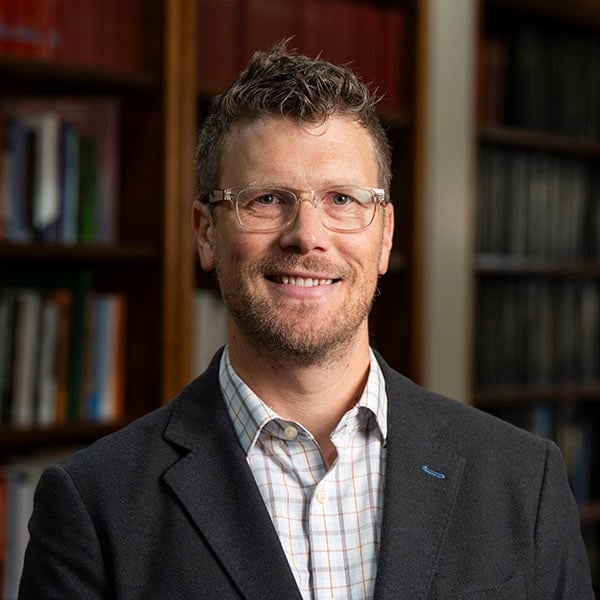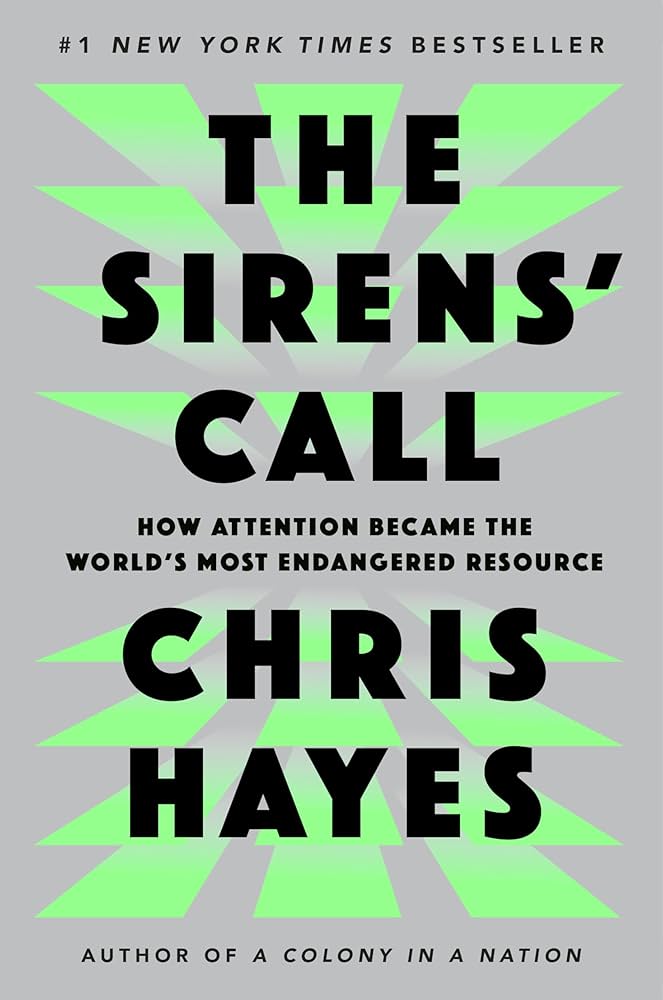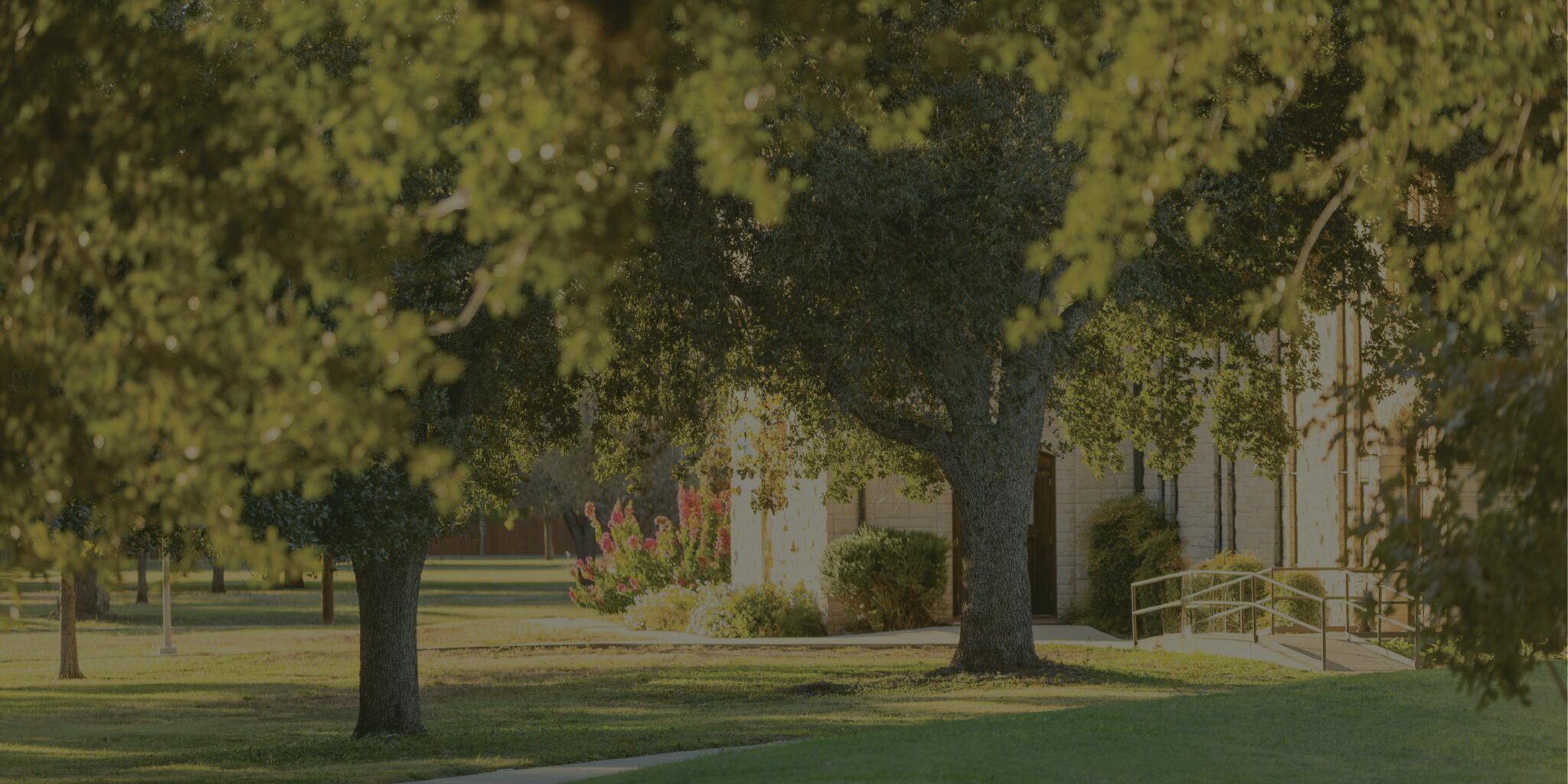Reviewed by Justin Klassen
Associate Professor of Theology, Bellarmine University

It feels increasingly urgent to talk with students about habits of attention. Too often, though, educators find themselves simply rehearsing complaints about the deficiencies in students’ ability to read and to produce academic writing. Chris Hayes’s new book, The Sirens’ Call: How Attention Became the World’s Most Endangered Resource, imagines a deeper source of urgency by framing attention as a fundamental aspect of being human. “Every moment we are awake we are paying attention to something,” Hayes writes. “Ultimately, these instants of attention accrue into a life” (3). Because attention is inseparable from our experience of life, it is also crucial that we feel a sense of agency over it; if we are not in control of it, we experience a sense of spiritual dislocation. Students will understand this—regardless of whether they’re ready for Dostoevsky.

To be fully human, we must also receive attention. As a species, we are desperately vulnerable at birth and for many years afterward, which means we have a natural and massive stake in acquiring the attention of others. No wonder, Hayes explains, that at a cocktail party, we can block out all background stimuli to focus on a particular person, yet some deep part of our mind will not miss our name being uttered in another conversation across the room. This need for attention is natural and necessary, but that does not make it our end goal. Rather, attention is the precondition for what we truly long for—care, reciprocity, and relationship. And these are also important ingredients in vocational reflection and discernment—so those of us who care about that kind of work should be, well, paying attention.
Recently, Hayes argues, this life necessity has been converted into something that can be extracted for profit, with no regard for its purpose. Pricing attention as a commodity, the world’s most powerful companies now compete not to fulfill its deeper aims, but to grab it again and again, in feeds that roll across our screens without end. This begins to explain our shared sense of alienation. Something deeply ours—the basic expression of our ultimate desire for relationship and connection—is reduced over and over to so many seconds of eyeball time. A longing for friendship is captured by a machine that can promise, at most, status as an influencer. And we feel the disconnect. Hayes develops a convincing analogy to industrial capitalism’s abstraction of labor from the workers who perform it: “To be reduced to a wage or an eyeball,” he explains, “is to find oneself alienated from some part of oneself” (122).
Hayes uses the regulatory successes of the labor movement (such as child labor laws and limits on the workweek) as a model for regulating our runaway attention economy. There must be limits on the extraction of our labor, because work is intrinsic to our humanity; so too, and even more so, with attention. Yet I found Hayes’s more personal, even spiritual recommendations more compelling than his larger policy suggestions, and more immediately actionable as well. “The solution, to the extent there is one, to alienation caused by this gap between what we pay attention to and what we want to pay attention to, is to begin with the question of what we actually want,” he writes in the concluding chapter. Odysseus knows before he ever hears the sirens that he wants to pay attention to navigating home, so “he makes a commitment in advance of the moment when he knows his attention will be stolen” (254). To discern what we actually want, and to make commitments that will get us there, is a truly urgent reason to talk with students about attention. How it applies to their study habits can come later; Hayes suggests we start with what it means to be human.

To report a technical problem with the website, or to offer suggestions for navigation and content issues, please contact Alex Stephenson, NetVUE communications coordinator, at astephenson@cic.edu.



